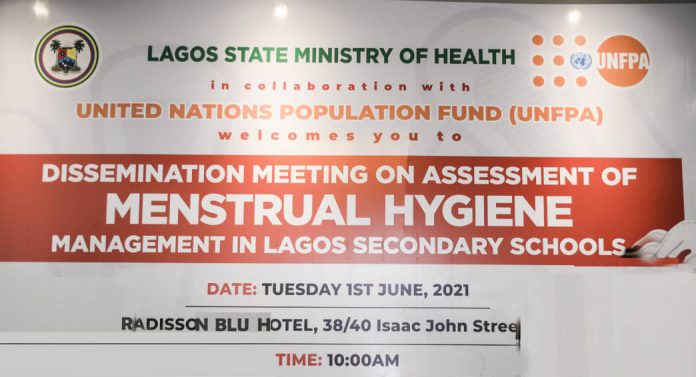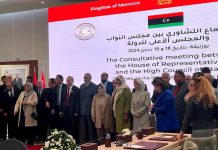The onset of a young girls’ menses is her induction into womanhood. Therefore, the young girl who starts menstruating must be empowered to understand this natural cycle of life that enables pro-creation and motherhood.
Unfortunately, within our cultural context, this is often not the case instead menstruation is shrouded in myths, superstitious beliefs, and even shame.
Most girls are in shock at their first sighting of blood, told to keep quiet about it, and cautioned to stay away from boys as they could now get pregnant.
This information is provided by grandmothers, mothers, aunties, and sisters who were also told the same thing when they were young.
However, what such the information does is tell the young girl that she has no autonomy over her body and it does not promote her sexual reproductive health and rights – a core pillar of the Sustainable Development Goals.
Therefore, the Lagos State Government in collaboration with the United Nations Population Fund (UNFPA) assessed the menstrual hygiene practices among adolescent girls in Lagos State Public Secondary Schools.
These findings were disseminated in meeting organized in collaboration with private sector partners – Hayat Kimya on the International Day for Menstrual Hygiene Management. The assessment findings showed that over half of the girls have poor knowledge about menstruation, believing it to be a process where dirty things are removed from their stomach.
Whilst the majority of them used sanitary
pads, a disturbing finding was that most of them re-used these sanitary pads after they had been washed and a good number of them do not change their sanitary towels when they were in school.
Such practices will inevitably compromise their reproductive health and could lead to dire consequences such as infertility in the future.
The female students present shared their personal menstrual stories which corroborated what the assessment findings showed – that many young girls are not being given vital information that can promote their health and have a significant impact on their lives.
When a girl is knowledgeable and confident about her menstrual health, it reflects on the choices she makes as a young adult and promotes her bodily autonomy.
In this regard, she is more comfortable discussing her sexual health and can better negotiate abstinence or sexual intimacy with a future partner.
Ultimately, having such skills prevent her from unplanned pregnancies, sexually transmitted infections, and other circumstances that can compromise her future and prevent her from reaching her full potential.
The Director, Family Health and Nutrition, Ministry of Health – Dr. Folasade Oludara said that the Ministry of Health recognizes its critical role in the process and intends to utilize the findings from this assessment to further engage other stakeholders, particularly the Ministry of Education as the school system provides the best platform to provide young girls the information they need, early on in life. She appreciated the
partnership and support of UNFPA in providing the funding to conduct the assessment and believes it will further incentives investment in adolescent health.
By Adenike Fagbemi












